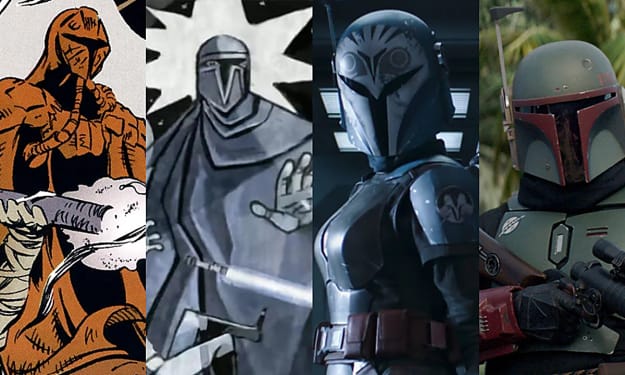The Right Time for Home Alone
Would the story be somewhere in your memory if it happened any other time?

Note: This is commentary based on the first two Home Alone films. I’m a “purist” fan of this franchise. The first two are the only films to maintain the principal cast both in actors and characters. Plus, I don’t think the others quite match up with the central theme I just talked about; I mean, Home Alone 3 isn’t even set around Christmastime. That said, this discussion warrants a spoiler alert too if you aren’t familiar with the films.
Thirty years ago debuted one of the best Christmas comedies of a generation. Two years later spawned a sequel, followed by spin-offs in the decades to come. You may remember two years ago when a short reprise of the original film helped promote the Google Assistant. Not to mention how even more recently, people have connected dots between Catherine O’Hara and Schitt’s Creek, Beetlejuice, Nightmare Before Christmas, and more importantly, the first two Home Alone films. All the films are available on Disney+ now and yet another one is in talks.
All that to say, Home Alone has become timeless. When you think about it, the heart of the Home Alone stories are one part of their transcendence: a family yearns to be together at Christmastime, whether in Paris, Florida, New York City or even just at home; that’s something a lot of people at any time can relate to.
Yet on the flipside, the Home Alone stories cannot exist in many other time frames if you think about it. For the most part, technology was “just right” for many things in the early films to happen. They’re situated in the early nineties, which of course was well before widely-accessible cell phones, social media, and smart devices. Throw any of those into the mix and the stories are quite different if they could exist at all. Here is how some of the plot points and details of the Home Alone stories would be influenced by modernity:
The undependable alarm clocks- In the first film, a storm kills the power overnight, rendering the alarm clock useless and causing the family to oversleep. The same gag in the second film is Mr. McCallister’s own fault for unplugging the clock and not resetting it.
I know some alarm clocks have a backup battery operation for when the electricity goes out. Were those a thing in the early nineties? In any case, cell phones are often the main source for time-keeping nowadays. If any were in the clan’s possession, set right, and charged, nobody would’ve overslept and the house would not be in such a fuss in the morning to make the flight.

Not missing their flight- Obviously, the clan wouldn’t have the luxury of rushing the airport to make their flight in the post-9/11 world.

Mother’s frantic but determined trip to rejoin with her son- If Kevin and family still somehow got separated in these hypothetical scenarios, in theory, they’d actually have more direct connections with each other, assuming Kevin has his own cell phone (on his person) and everyone is familiar with using FaceTime, Skype, Messenger, or something similar.
If Mrs. McCallister still absolutely had to make her trek though, she might do it through a few Lyfts or Ubers, maybe stay at an AirBnB instead of all night at the airport, or maybe internet search bus routes and book her trip.

Criminal impostors scouting the neighborhood- the McCallister patriarch admits near the start of the first film that locking doors and automatic lights seemed to be the best they could do in the way of home security at the time; apart from Kevin’s booby traps, those means are obviously not as technical or sophisticated as today. One couldn’t be a bumbling Wet Bandit if they wanted to get past any alarms, cameras, or sensors that guard a house. Not to mention, vigilant neighborhood watches or social media might even tip off authorities or locals before anything got out of hand.
More still, the presence of a good housesitter or petsitter could both deter some criminal activity and provide some peace of mind for Kevin and/or the family. If they were out of town for a while, they might need someone to get their mail, care for any plants or pets, or to just stay and watch over the house. Care.com or whatever similar resources would have to be considered because somehow almost every other neighbor on the McCallister’s block is out of town around the same time as well.
Albeit, the presence of a sitter would likely make Kevin’s “I made my family disappear” moment nonexistent, but they could charge extra for the added responsibility of babysitting him too.

Kevin on his own- In the films, Kevin lives his best childhood life while apart from his family. In the first film, he jumps on his parents’ bed while munching on popcorn, eats a junk food concoction while having free reign of the tv, rummages unhindered through his brother’s belongings, sleds down the stairs and into the yard, and even enjoys a cheese pizza all to himself.
What would “living the childhood life” look like any other time? Being at home with the electronics, possibly like all the tv/video game/tablet screen time a kid can stand, assuming parental controls aren’t limiting their usage or he could bypass them.
If he knew how to shop or order online, he would’ve had fewer reasons to leave the house.

He kicks living it up a notch in the second film. After playing tourist in New York City all on his own, he finds the fancy hotel and gets away with using his dad’s credit card to book himself a suite. He runs up a tab on the room service and rents a limo to visit a major toy store. Even believing the contrived stories he tells them, the hotel staff treats him like royalty before he’s found out.
Again, while the Home Alone stories with more modern technology and security are essentially butterfly-effected from plausibility, I think one little detail from back then makes Kevin better off than he might be in the alternate scenario. That detail is the address book he looks at in the second film.
When Kevin is homesick for his family, he pulls the family photo from his dad’s wallet and goes through his contact book. Kevin finds that one of his relatives lives in town, and thinks about dropping in if they’re back from Paris. Well, that visit comes a lot sooner after he crosses paths with Marv and Harry and the hotel staff scare him off trying to confront him about the credit card situation. In a more ideal scenario, he would get to his relatives’ address to find some familiar faces, safety, security, and maybe even some help out of the mess he was in, instead of a vacant, half-renovated hijinx battleground he prepares for the Bandits.
Case in point, are physical address books terribly common anymore? Some cell phones and programs have capabilities to save and store addresses; however, those features are only useful if/when we take some time to program them. Kevin really might have really been aimlessly lost in New York if he had a phone with just names and numbers.
About the Creator
Katie Johns
Random blogger and published short story writer-
https://kjohns323.wixsite.com/kjswritersblock/portfolio






Comments
There are no comments for this story
Be the first to respond and start the conversation.